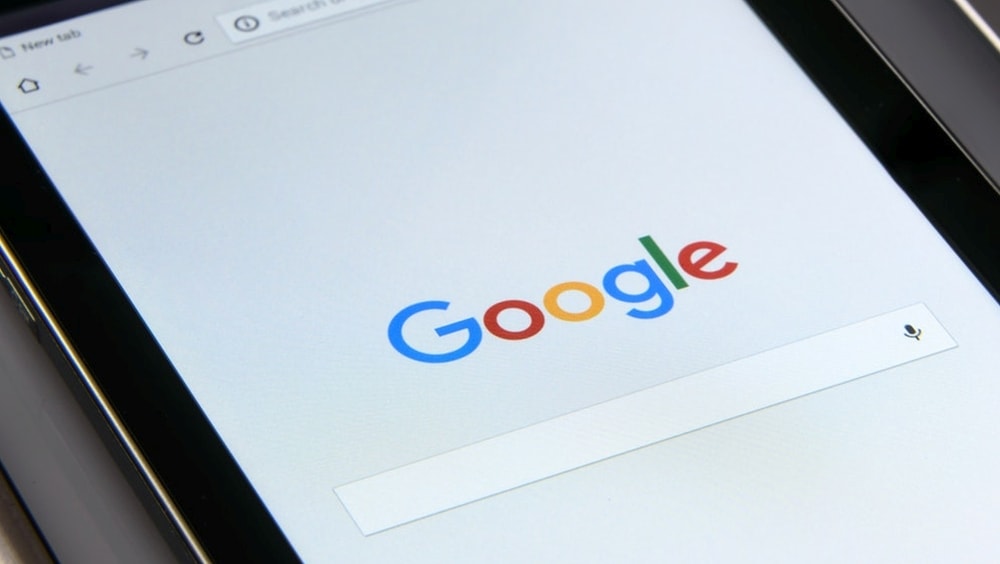 photo: PhotoMIX Ltd./CC0/Pexels
photo: PhotoMIX Ltd./CC0/PexelsWhat does Google collect? When using the most popular search engine, we should be aware of how our data is collected and used. Google collects three main types of information:
- our activity, including searched content, opened web pages, clicked ads, device details, IP address, and cookies
- published content, such as sent and received Gmail messages, uploaded photos and videos, documents, spreadsheets, and presentations on Drive
- personal data, including name, email address, password, date of birth, gender, phone number, and country
- Information collected by Google enables continuous improvement of search engine mechanisms. It is also used to display personalized ads. However, it’s essential to remember that this activity also carries risks. Most people still have insufficient knowledge about data processing by the search engine, says Przemysław Gąsiorowski from ODO 24. - Take Google Maps, for example – it can track our movements, allowing us to know precisely where and at what time we were.
Google in the Face of GDPR
The EU regulation in force since May 25, 2018 (GDPR) sheds new light on Google’s activities, which has introduced additional tools for users to control and manage information collected through its services.
Currently, Google’s compliance with GDPR includes requiring user consent to process personal data for displaying relevant ads. This action is mandated by European law, which generally prohibits processing data solely based on automated systems.
Due to the new regulation, Google’s business practices for handling employee, client, and other personal data have also had to change.
Removing Data from Google
It’s possible, at least to a certain extent. This can be done by accessing a dedicated page that provides guidelines for this process or through the "right to be forgotten," which every EU resident gained under GDPR.
However, with these options, only search engine information is removed. This means that personal data published on a website will still be visible to visitors (but will no longer be searchable).
In today’s internet-driven world, data protection is an increasingly relevant topic. Users need to understand what happens to information of such a high degree of confidentiality, concludes Przemysław Gąsiorowski. - It’s worth taking some time to learn more about this area and take steps to increase our online security.
Privacy on the Internet is an Oxymoron. "You’ve Been Tracked"
"You’ve Been Tracked!" This was the slogan of a campaign organized by the Panoptykon Foundation in cooperation with the Dutch organization Bits of Freedom and the Belgrade-based d:mode studio. Its aim was to make internet users aware that privacy online is a myth and to propose changing the rules of advertising on the internet.
- The campaign targeted two audience segments, identified based on keyword correlation with narrow topics in the Google Display Network.
- People searching for answers to questions related to issues such as relationship problems, teenage pregnancy, or difficulties with children saw tailored ads directly addressing their concerns.
- Users interested in internet privacy (e.g., journalists, activists, programmers) were shown ads related to tracking.
The ePrivacy Regulation is the second stage of data protection reform alongside the already adopted GDPR. It addresses practical privacy challenges for users, focusing on how online services and connected devices operate. Regarding targeted advertising, the ePrivacy Regulation doesn’t bring a revolution: consent is already required for ads served by third parties (companies with whom the user has no direct relationship). However, the new law proposes stricter interpretation of this rule and excludes the possibility of implying consent based on browser settings.
The European Commission’s reform is an opportunity for users who want to decide for themselves who will access their data and for what purpose (including advertising). It’s also an opportunity for companies willing to engage in an open dialogue with customers about their concerns and expectations regarding tracking and profiling online.
COMMERCIAL BREAK
New articles in section Law in media
Dietary supplement ads in Poland. Who keeps influencers in check?
Newseria, KFi
One in three Polish internet users considers influencer recommendations when deciding on medicines and dietary supplements. Although promotion of such products is regulated, there are still cases of advertising that skirt the law.
SEO Poisoning. Hackers Use Search Engines to Target Businesses
Piotr Rozmiarek
Search engines help us quickly find information, but they can also be used by cybercriminals. SEO poisoning is a tactic where attackers manipulate search engine rankings to place harmful websites at the top of search results.
Phishing in the Cryptocurrency Industry. Fake Recruitments Steal Data
Piotr Rozmiarek
Security researchers have detected a social engineering campaign targeting job seekers in the Web3 industry. The attack aims to conduct fake job interviews via a meeting application that installs information-stealing malware.
See articles on a similar topic:
Big Data in Poland. Companies Lack Ideas for Data Utilization
KF
Only 11 to 16 percent of domestic companies report using Big Data solutions, according to a survey by OVH and Intel. Among companies that have not yet used Big Data, only 2 percent plan to adopt this technology this year. Meanwhile, nearly all large and small companies admit to collecting customer data.
Deepfake. A Powerful New Weapon in The Information War
Krzysztof Fiedorek
One of the newest threats to the credibility of information is deepfake technology. Deepfake is a type of false video or audio material where the person in the recording appears to speak or behave in a way that does not align with reality.
Local Media in Poland - Announcements
Bartłomiej Dwornik
Research by ComPress Agency, conducted among journalists in 2001, indicates that only 7 percent of them believe that PR specialists and press spokespeople understand journalists' needs well.
Cyber Threats 2023: Phishing Dominates, AI Targeted
Krzysztof Fiedorek
The CERT Orange Polska 2023 report reveals a rapidly evolving cyber threat landscape. Phishing has taken a decisive lead, accounting for over 44% of reported incidents. Advanced social engineering techniques, deepfakes, and a surge in malicious ads lure users with promises of quick profits or easy opportunities.






























